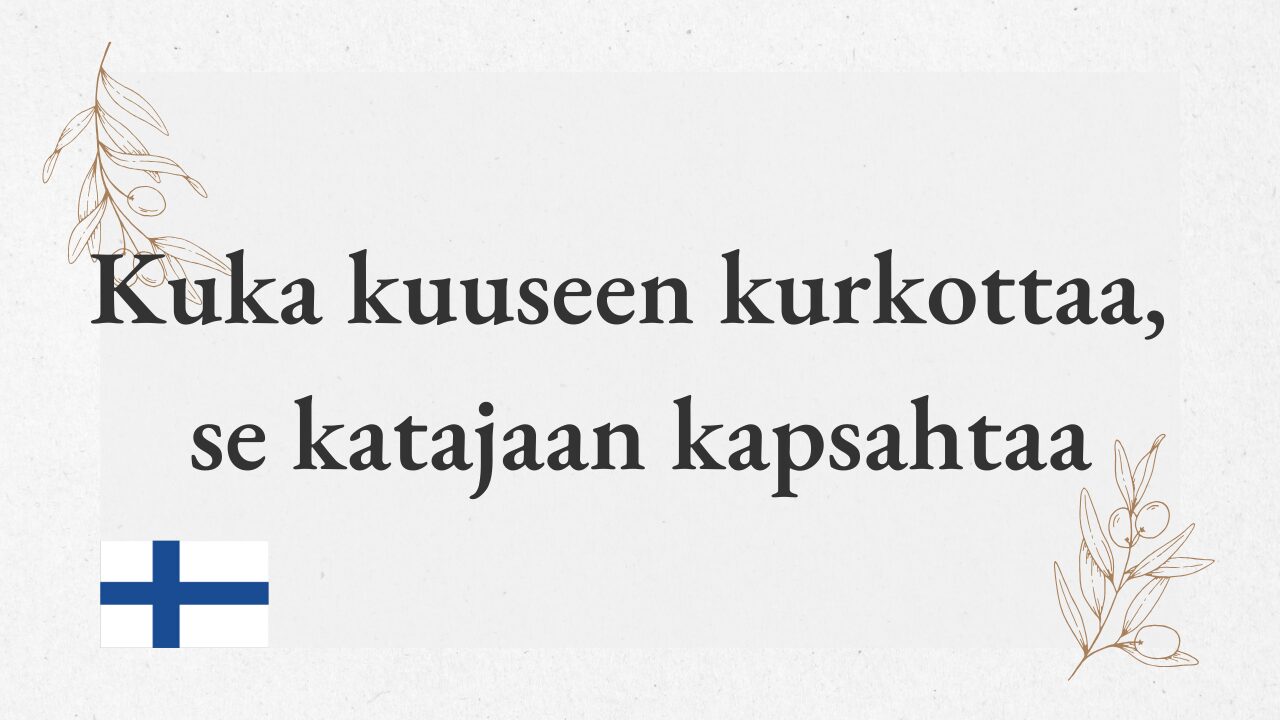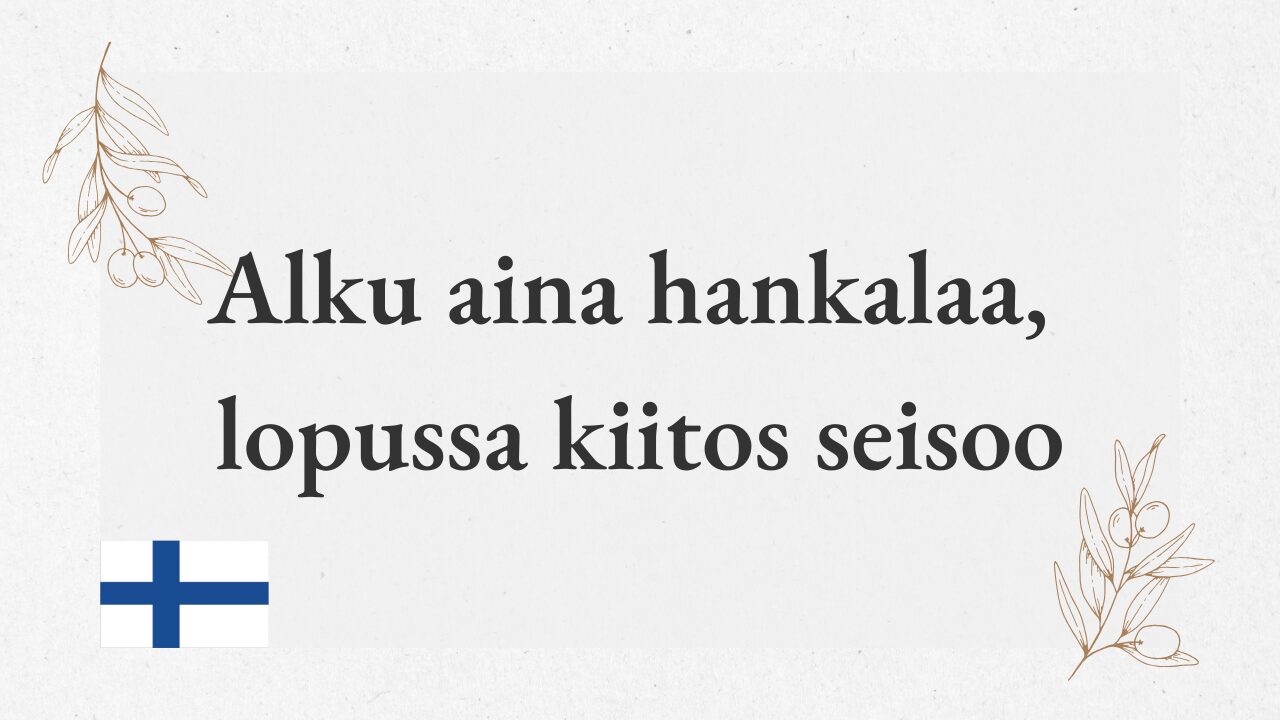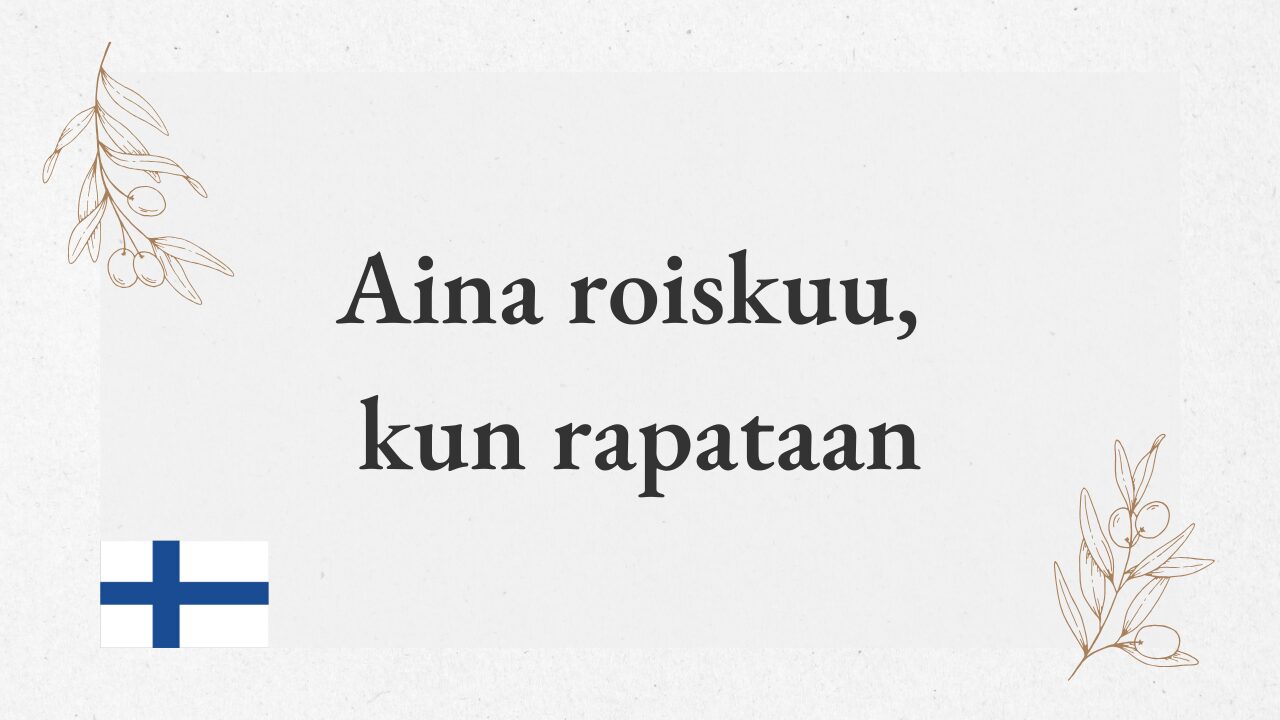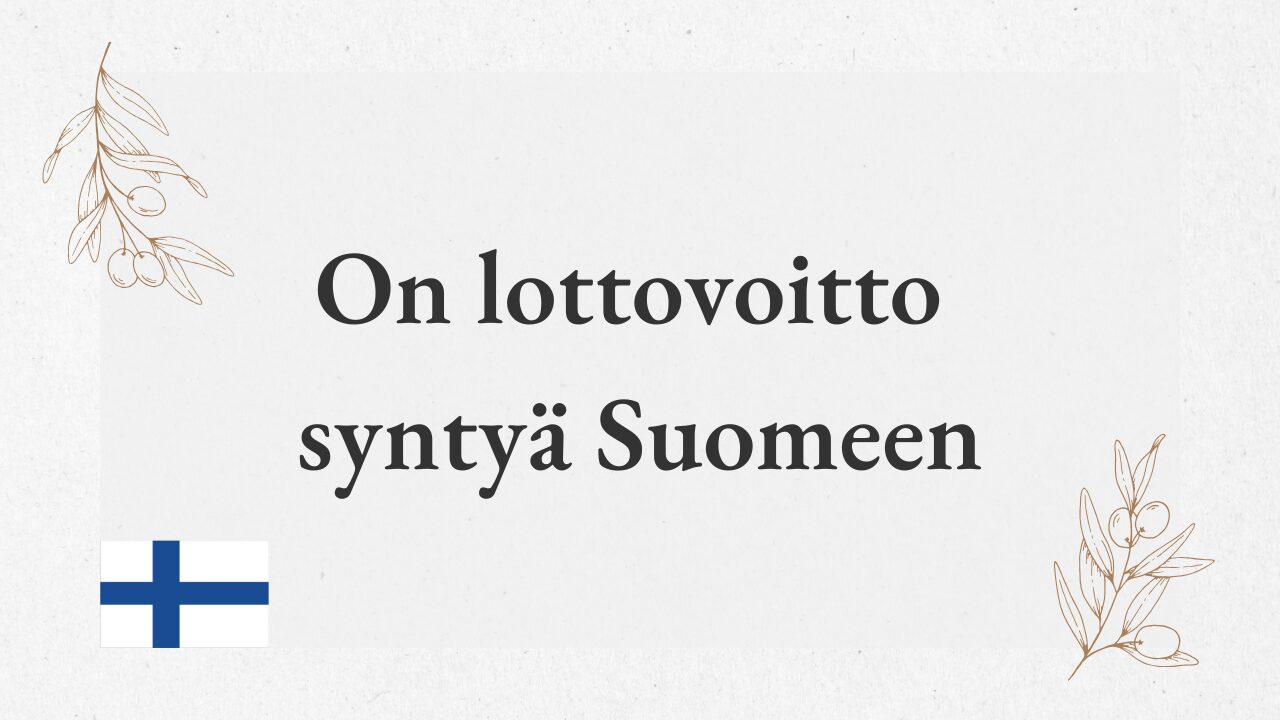“Pata kattilaa soimaa, musta kylki kummallakin” – The pot criticizes the kettle, but both have a black side
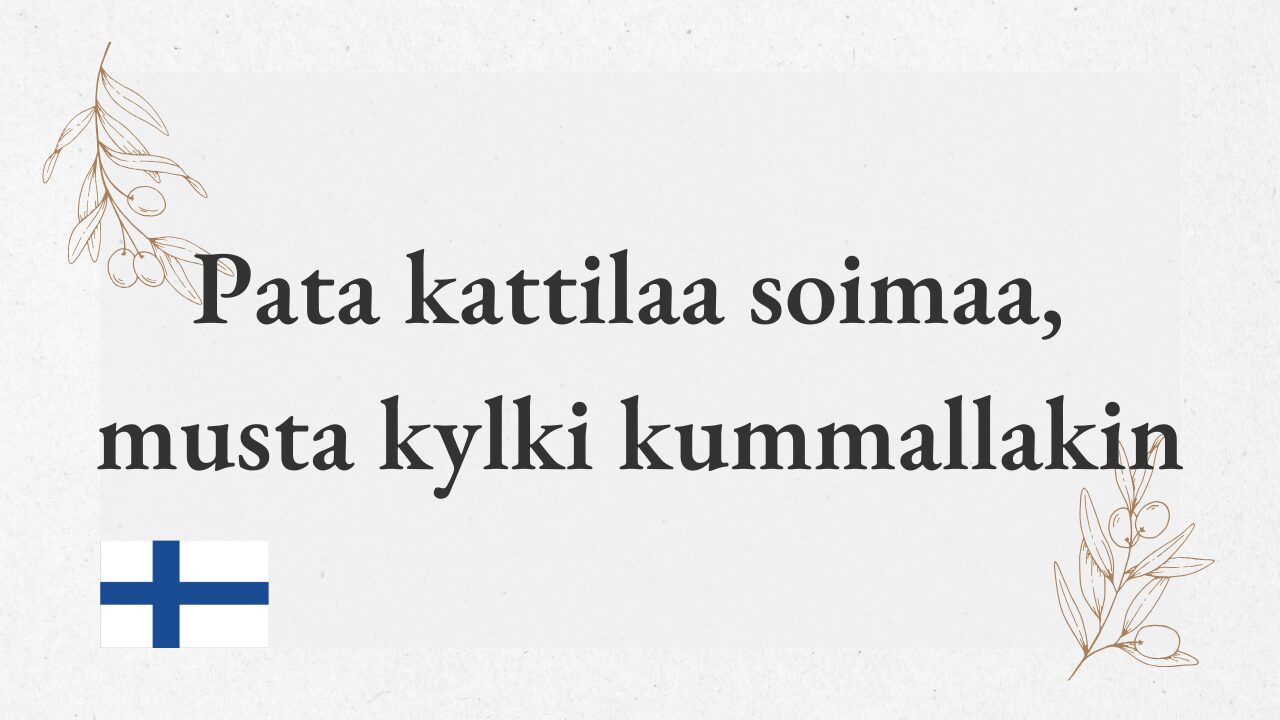
Meaning
“Pata kattilaa soimaa, musta kylki kummallakin” literally translates to “The pot criticizes the kettle, but both have a black side.” This proverb warns against the folly of criticizing others for flaws that one also possesses. On the surface, it appears that the pot is reproaching the kettle for being “black,” but in reality, both have been placed over a fire, resulting in both becoming blackened and being in the same state.
For this reason, criticizing others without acknowledging one’s own similar flaws is seen as meaningless and even absurd. Similar expressions include the English proverb “The pot calling the kettle black” and the Japanese phrases “目くそ鼻くそを笑う” (“the eye dirt laughs at the nose dirt”) and “五十歩百歩” (“fifty steps vs. one hundred steps”), which all convey the irony of finding fault in someone for the same flaws one has.
Origin
This proverb originated in Finland during times when cooking was done over open fires or wood stoves in a cold climate. Both pots and kettles would inevitably become blackened from the soot and smoke, making this image a daily reality.
As such, the absurdity of mutual criticism, despite both parties being in the same state, became a natural metaphor. This expression reflects the Finnish value of looking inward and recognizing one’s own flaws before judging others.
Conclusion
“Pata kattilaa soimaa, musta kylki kummallakin” is a Finnish proverb meaning “The pot criticizes the kettle, but both have a black side.” It warns of the foolishness of criticizing others for the same flaws one possesses.
Originating from the traditional Finnish practice of cooking over open fires, where both pots and kettles would be blackened by soot, it humorously points out the absurdity of criticizing others for shared flaws.

